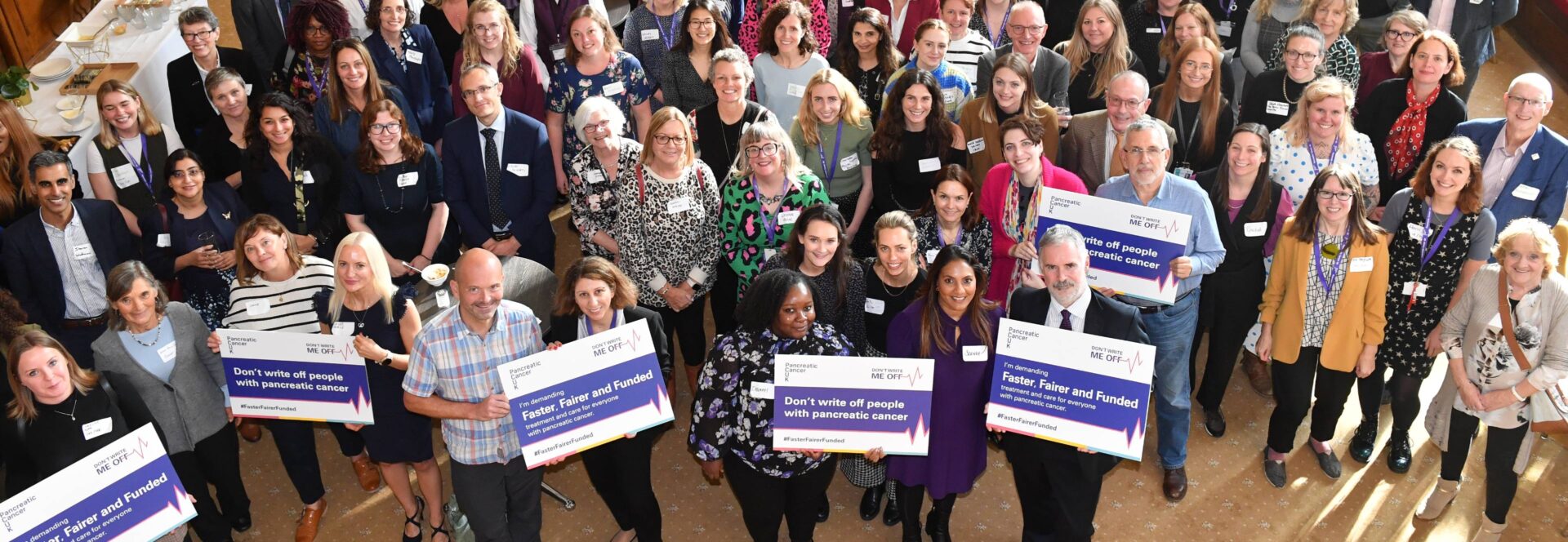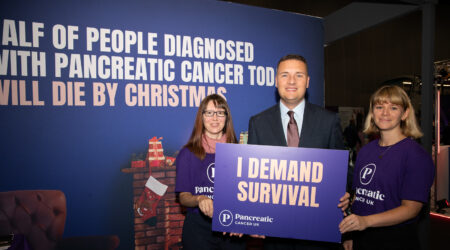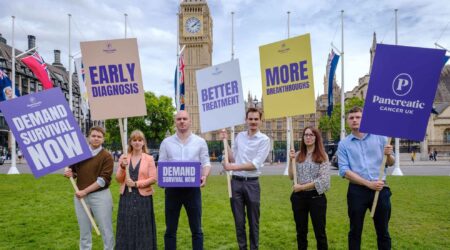This is a crucial opportunity for our pancreatic cancer community in England to ensure the Government finally addresses the needs of people affected by pancreatic cancer in its plans. We understand the Government’s 10 Year plan will inform its upcoming cancer strategy.
Health professionals are being invited to complete two surveys
If you have 2 minutes to spare
Complete the short workforce survey
This survey asks you 5 question about your experiences, challenges in the workplace.
If you have 15 minutes to spare
Complete the in-depth NHS survey
This survey is more in-depth and asks for your thoughts on the main challenges facing the NHS and your views on the three ‘shifts’ that will be at the centre of its new plan.
Read our response to the consultation
Pancreatic Cancer UK’s response highlights how the system is currently failing people with pancreatic cancer and outlines the actions the government must take to finally turn the tide on this cancer. You are welcome to read this and see if there are parts that you’d like to use in your own response.






